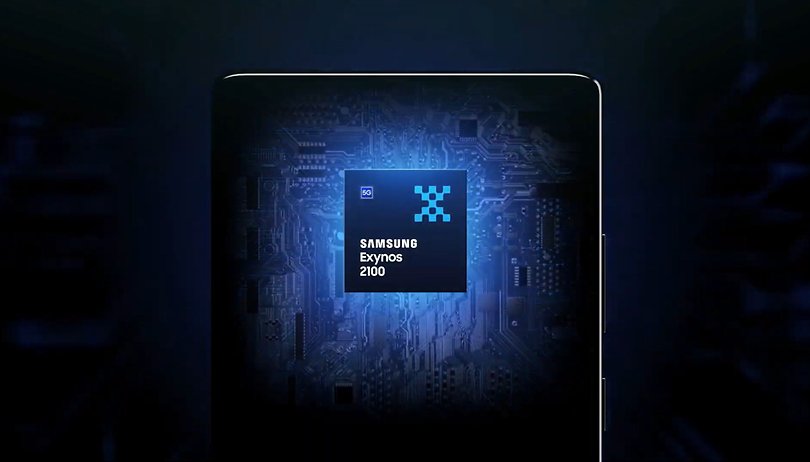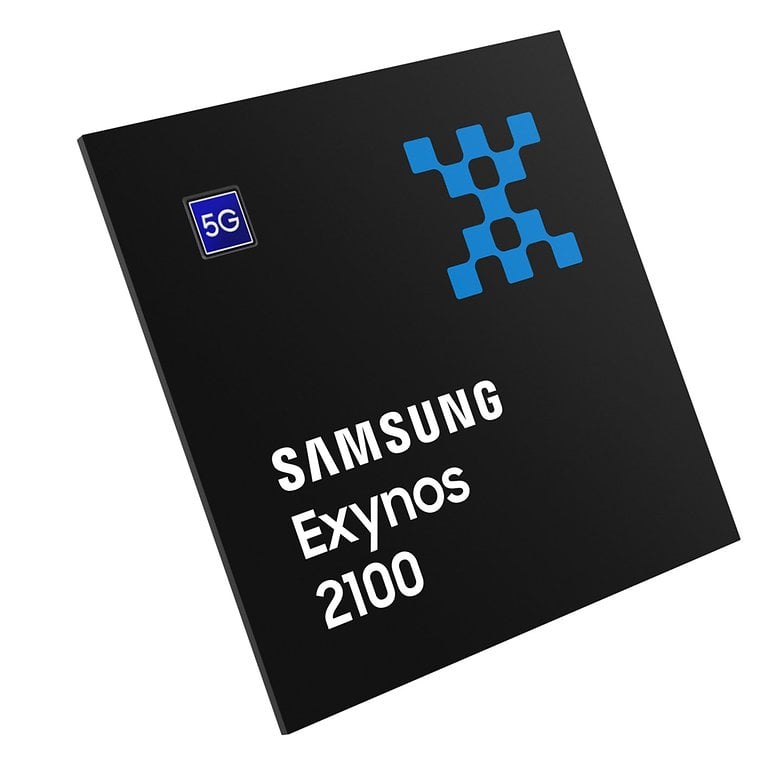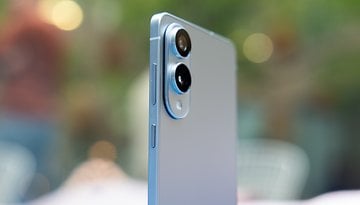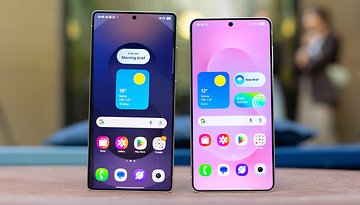Samsung Exynos 2100: Too important to fail


Samsung has scheduled its own launch event for the Exynos 2100 for the very first time in the company's history. This year, the South Koreans see themselves to be very well-positioned in the seemingly eternal duel with Qualcomm. They had better be, simply because this particular shot has to hit the target!
Samsung unveils its new Exynos 2100
The virtual event to unveil the new Exynos 2100 has just ended. This is the very first time that Samsung has directed so much attention to its SoC, which gives hope that the South Koreans have more to offer this time around than they did with the Exynos 990. We still remember: in Europe, among others, the Galaxy S20 went on sale with the said Exynos 990 chipset, while the US and other countries received the "better" Qualcomm Snapdragon 865 chip.
Samsung always assures consumers that it ensures its own SoCs are as powerful as their Qualcomm counterpart, but the amount of criticism that flared up should have made it clear to the company that many users were unhappy with the performance of its in-house processor. For a long time Samsung justified itself but in the aftermath, they must have come to the realization that they had indeed disappointed fans time and again.
How else can you explain that Samsung, in the run-up to its Exynos event, specifically bounced a teaser clip around the web, explicitly addressing the feedback from disappointed Samsung followers and vowing to do better? Here's the video:
It's almost here. Stay tuned for the #ExynosOn. #Exynos_is_back https://t.co/bEfaV2qxWv pic.twitter.com/kqJGxNy4MN
— Samsung Exynos (@SamsungExynos) January 12, 2021
But the very fact that the smartphone giant dedicated an online event specifically for a new Exynos chipset already suggests how serious the company is about this subject matter this time around. Let's take a quick look at the facts:
Exynos 2100: Samsung flexes its muscles
After early, eager speculation and leaks, the veil has been finally lifted so we know what we're dealing with in the Exynos 2100. Just like Qualcomm and their Snapdragon 888 chipset, Samsung relies on the combination of a Cortex X1 high-performance core as well as a trio of Cortex-A78 and four Cortex-A55 cores for the Exynos 2100. The X1 clocks in at 3.9 GHz, making it even a bit higher than in the Snapdragon 888, while the other seven cores clock at 2.8 and 2.2 GHz, respectively.

For the first time ever on its a mobile processor, Samsung will be integrating a 5G modem. Also premiering is a chipset that is manufactured using the 5-nanometer (nm) extreme ultraviolet (EUV) process. This results in up to 20 percent lower power consumption and 10 percent higher overall performance than its 7nm predecessor (at least on paper).
Samsung talks about how the Exynos 2100 improves its single-core performance by 19 percent over its predecessor, and multi-core performance by as much as 33 percent. The system supports HDR10+ displays up to 4K resolution and also supports 8K TV-out. The Mali G78 MP144 GPU is responsible for all the graphical firepower, and the graphics performance is said to be up to 46 percent better.
There's also a significant increase in artificial intelligence capability, as the three-core NPU is said by Samsung to calculate 26 trillion operations per second, compared to "only" 15 trillion in the predecessor. As for the camera, it supports resolutions of up to 200 megapixels and up to six camera sensors, four of them simultaneously.
Snapdragon vs Exynos: This shot needs to be on target, Samsung!
And it's also high time Samsung not only took the processor game seriously, but deliver on its unfulfilled potential. Of course, when we're critical of some SoCs of the past, that's simply nitpicking at a very high level. Sometimes people may forget that Samsung is not only the largest smartphone manufacturer in the world, but also one of the most important and largest chip manufacturers in the world. So there's no denying the fact that the South Koreans produce good processors.
But "good" doesn't automatically mean that you can keep up with the market leader, and when it comes to processors for flagship smartphones, Samsung has to concede that it hasn't been able to compete with Qualcomm's Snapdragon series so far. When an Exynos 990 was installed in the Galaxy Note 20 last year instead of the Snapdragon 865, it wasn't just our Antoine who was horrified.
Sometimes, Samsung really does make you want to pull your hair out, even though that probably sounds strange coming from someone like me. Samsung is simply world-class in so many ways, and they consistently top the charts across various areas of consumer electronics. But sometimes, they just do things that make you want to grab a nice chunk of your hair and cringe as you pull at it.
For instance, I have personally felt this way whenever I receive a service from Samsung that I do not want to make use of. Its own mobile payment system, its own music service, its own messenger: Samsung has been through quite a bit, and a lot of it didn't last long. The term "Bixby" should also ring a bell. It's one thing to think you need your own voice assistant for your ecosystem. But to give it its own hardware button, which you couldn't assign freely for far too long - that's just one of those moments where Samsung continues to leave us tech journalists perplexed.
I mentioned all of these because it also seems to be the same case with the processor. Samsung shouldn't simply shut down its production and give up, because the chipsets are a necessary component for smartphones, no matter if they are made by Samsung or by other manufacturers. But in the premium segment, Samsung keeps behaving like a petulant child. At the very least, you would want to keep up with the best SoC out there or even outdo it! The approach is legitimate, but hard to comprehend when you repeatedly fail at it.
That's why I now believe the Exynos 2100 is pretty much the last bullet Samsung has left in its chamber, and it simply cannot afford to fail or miss the mark. After the Exynos 990, Samsung needs to give its top hardware this year in the form of an SoC that is at least on par with the Snapdragon 888 - or better, dare I dream? If it doesn't, not only will the critics from last year be all over them, but they'll bring a whole lot more vocal friends with them for the long and uncomfortable ride. Samsung simply cannot afford to lose any more ground in the flagship processor race.

Reason to hope
It may be that Samsung has come off a bit too poorly in the article on the day they presented a thoroughly exciting product, but that should not be the case at all. Far from it. After all, there are already leaked benchmark tests that let us guess that Samsung might have finally hit the bull's eye in terms of performance. According to the leak, the Exynos 2100 would not only keep up with the strongest Qualcomm SoC in terms of processing firepower but even outperform it.
Of course, that doesn't say much at the moment and this duel will only really be decided when we're not talking about artificially created test environments, but in real-world tests. Until then, the Exynos 2100 presents itself as a very aggressive performer with improvements made over the previous generation that was mentioned during the event.
Exynos? Snapdragon? Does that even matter?
With that in mind, I would also like to conclude by appealing to you, the NextPit community: Hold off on the brickbats if it turns out anytime soon that the South Koreans' upcoming flagship phone will once again feature the wrong processor in the wrong regions. Let's wait for the real-world tests first and see how the Exynos 2100 actually performs.
And a little provocation here as I play the devil's advocate: How many people do you know who actually bother about what kind of processor is installed in the smartphone? We shall discuss this eagerly in a safe space, or perhaps even come to blows (verbally) as we argue the salient points from both perspectives. But what does it look like outside of this geek bubble? Personally, I think, for the most part, people out there care precious little. When I asked my acquaintances, they can't even tell me what version of Android they are currently using.
So, it is possible that we're overdoing these comparisons a rad bit and that a world-class smartphone remains a world-class smartphone, even if some benchmark test scores come out as mediocre. But since I'm still new here in the NextPit community, I'd just pass these questions on to you guys to obtain a feel of what makes you tick in this regard: Do you guys think the Exynos 2100 will actually outperform the Snapdragon 888? And do you think that this is actually a very basic requirement for the majority of smartphone buyers? Feel free to participate in the poll and please share your thoughts in the comments.


















